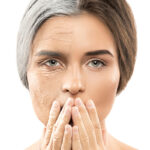The Benefits of Sleep
Sleep has always been an enigma, with science not yet sold on the exact reason we need it. But, whatever the source of the slumber, we tend to have strong opinions on how we feel about bedtime.
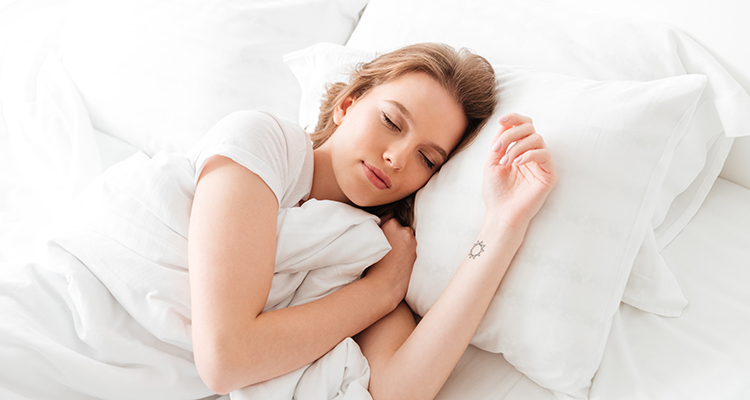
As children, we fuss and muss whenever we’re told to rest. Come adulthood, we welcome sleep like an old friend, jumping into bed and letting the flannel sheets wrap their arms around us.
But, while perspectives change, the known benefits of sleep remain steady: Sleep is always something we need, even when it’s not something we want.
So, what are the benefits of bedtime? It gives us a chance to dream – to visit whimsical worlds of dinosaurs, talking rabbits, and sightings of loved ones long passed. Yet it also offers benefits much more grounded in practicality. And those benefits begin in the brain.
Content
The Brain on Sleep
Like sleep, the brain remains a bit of a mystery; we know things about it, of course, but there is so much more to explore. Still, we’re quite aware of the benefits sleep brings to our ability to think and process.
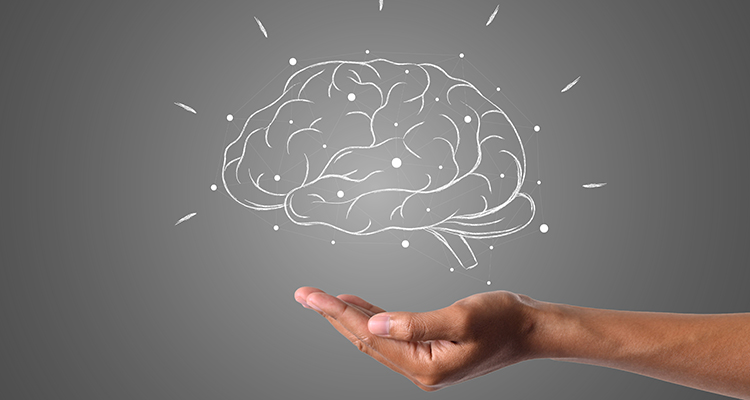
The following come to mind:
Making Time for Sleep Translates into Making Memories
For starters, sleep turns moments into memories, solidifying them so they’re stored and easily recalled. The way it does this is through its ability to strengthen relevant neural connections, while dismissing interfering ones.
On any given day, the average person is inundated with information – stuff that matters and stuff that doesn’t. The brain can’t possibly remember everything that it encounters, so it’s forced to get picky. Sleep helps with its selection process, keeping the memories worth retaining and ignoring the info deemed irrelevant.
Many people have experienced this on their own; they remember something more strongly after sleeping on it. While this is largely beneficial, it does come with a bit of a downside; sleep solidifies the bad memories along with the good. And, after these negative memories consolidate, we are less likely to suppress them.
Processing Emotions as We Rest
Imagine, for a moment, the sleep-deprived child. They scream and pout in a fit of crankiness, rubbing their eyes and fussing about. Tears of frustration drip down their cheeks and nothing, nothing, can make them happy. Deep down inside, we’re all this child when we don’t get a good night’s rest.
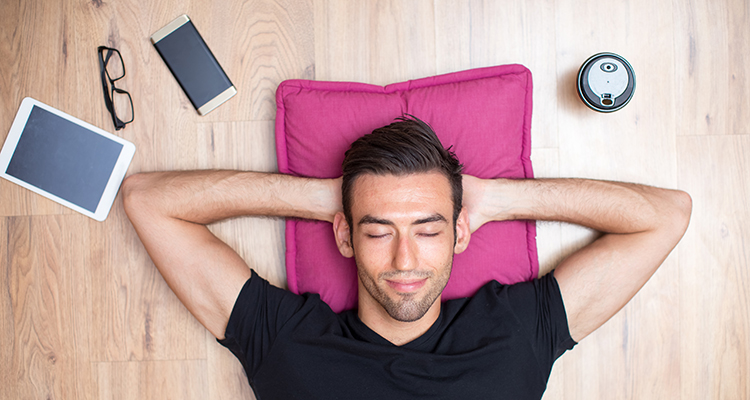
Sleep doesn’t process our memories and call it a night; it processes our emotions, too! And that’s why we feel down in the dumps and on edge when we don’t get enough of it.
During sleep, the brain processes the information it recently received; it weighs it and decides to integrate it or dismiss it. It takes its time recognizing the importance of this intel and that allows us to react the right way. When we get too little sleep, it interrupts this process and that increases the likelihood of overreacting. Getting cut off by someone in traffic, for instance, tends to enrage us much more on days we aren’t well rested.
Not only that, but this processing of emotions acts as a reset button of sorts. One of the best remedies for a bad day is to go to bed – hitting the hay allows us to wake up refreshed, rejuvenated, and with a more positive, rosier outlook.
Sleep Enhances Our Cognition
We already know that sleep (or lack thereof) affects us cognitively. Many of us have the experience of walking around in a sleep-deprived fog, slow to focus, think, react, and make decisions when we miss an hour or two of shuteye.

Sleep is necessary for higher cortical functions like multitasking. While many of us think of multitasking in extreme measures – cooking dinner for our children while sending emails to our boss and listening to our favorite podcast – we actually multitask multiple times a day.
Driving, for example, requires multitasking, which is why the severely sleep-deprived driver is, statistically, as dangerous to himself and others as the drunk driver. It requires us to use our hands, feet, vision, hearing, and awareness all at once. It may involve additional tasks too, like changing the radio station, turning on the windshield wipers, or telling the kids in the backseat to behave.
Sleep enhances our ability to stay alert as well. When we’re rested, we feel it – we’re focused, energetic, and refreshed. What’s more, sleep begets sleep and people who recognize how good they feel after a sound rest are more likely to practice proper sleep hygiene. One good night quite literally leads to another.
But the benefits of sleep aren’t limited to evenings; napping during the day comes with its own perks. Napping refreshes us, giving us get up and go and minimizing the three o’clock blues. And – hooray! – napping makes us smarter. We’ll go ahead and file that under “best news ever.”
Rest Creates Creativity
Everyone has creativity, including those who don’t view themselves as particularly artsy. But to reach creative potential, people need to sleep, first. When we are sleep-deprived, we have a harder time with divergent thinking, or the ability to generate original ideas and think outside of the box. Sleep squashes imagination and keeps ideas from coming to fruition.

Interestingly, this divergent thinking is the first thing that tends to go when we lose sleep (which makes adequate rest more important to writers, artists, coders, designers, and anyone else who relies on their creativity for their career). This is opposite of convergent thinking, the type of thinking we tap into when taking a chemistry test; this type of thinking tends to stay with us, even when sleep is lacking.
Sleep isn’t only important to creativity because it enhances our divergent thinking, it’s also a time when creativity may occur. Dreaming up new ideas or waking one morning with an inventive thought aren’t rare occasions: anecdotally, they’re well-documented throughout history. Creative people suffering from writer’s block or a vision they can’t get quite right often find that a night of sleep reveals the solution.
Sleep Clears Toxins from the Brain
The brain is powerful, so it should come as little surprise that it clears out toxins. It does this during both waking and sleeping hours, but it does it more effectively when we’re asleep.
It’s believed that the lymphatic system essentially enjoys the nightlife: When we go to bed, it revs things up. This system is imperative to health as it acts as the body’s filter. It clears out waste, toxins, germs, and other unwelcome visitors. It also fights infection by transporting lymph – defensive, mighty, and filled with white blood cells.
Research has found that the amount of space between brain cells widens at rest and this facilitates filtration through the cerebrospinal fluid. One of the things filtered is B-amyloid protein, the plaque-causing precursor to Alzheimer’s Disease.
The Influence of Rest on Anxiety and Other Brain Blahs
Sleep typically doesn’t cause anxiety disorders; rather, they start because of chemical imbalances in the brain (specifically, suffers may have lower than normal amounts of serotonin, norepinephrine, dopamine, or skewed levels of other important neurotransmitters). But even if sleep doesn’t cause these brain blahs, it potently influences them.
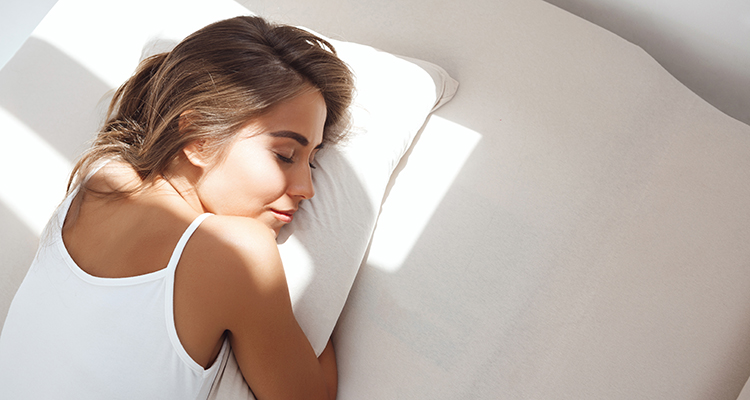
Lack of sleep tends to worsen worrying. Studies show that sleep deprivation affects the areas of the brain associated with emotional processing. This results in abnormal neural activity and felt nervousness.
While anyone can experience the angst that comes with a poor night’s sleep – the crankiness, the irritability, the feelings of sadness – those with anxiety disorders or who tend to be chronic worries are particularly susceptible to influence. In other words, anxious people tend to experience the most dramatic effects when they don’t get enough rest.
And, now, a quick caveat……
As mentioned above, anxiety disorders aren’t usually caused by sleep. Take Obsessive Compulsive Disorder (or OCD). This is a chronic anxiety disorder that is caused by genetic and hereditary factors, chemical abnormalities in the brain, and distorted brain function.
Environmental factors, like stress, sleep, and exercise, can influence how OCD presents itself, but they won’t cause it to pop up in an otherwise unaffected individual. And this is true for other types of anxiety disorders as well.
Except, perhaps, until it’s not……
New research has discovered that chronic insomnia can cause anxiety disorders in those who are predisposed. The lack of sleep acts as the proverbial straw that breaks the camel’s back in people primed by their genetics. It’s possible the anxiety disorder would have occurred eventually, even in the well-rested; then again, we don’t know this for sure.
The Sleep/Depression Partnership
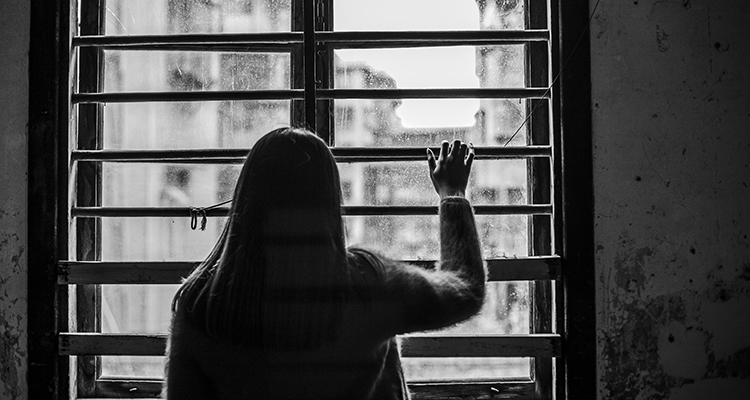
Those suffering from other mental illnesses, such as depression and bipolar disorders, benefit from sleep just as much. Sleep loss, again, can act as a trigger, stimulating the problematic areas of the brain that contribute to the underlying issues. Thus, getting enough of it prevents the mind from reacting negatively.
The relationship between sleep and depression has long proved a bit confusing as those suffering from depression experience both insomnia (the inability to stay or fall asleep) and hypersomnia (sleeping too much). Not only that, but the actual source of the problem is a bit perplexing, a chicken and egg dilemma that no one has yet solved. Simply, doctors aren’t sure if sleep issues cause depression or if depression causes sleep issues. Or if it depends on the individual situation.
Regardless, one thing is certain: Sleep deprivation doesn’t do anyone any favors, whether they’re dealing with depression or not.
Sleep and Physical Health

Okay, so we know that the brain needs us to rest and it definitely acts out when we don’t. But sleep isn’t merely beneficial to our memories, emotions, moods, and the other things listed above, it’s also vital to our physical wellness.
We Heart Sleep for a Reason
Sleep greatly impacts our cardiovascular system (maybe that’s why we heart it so). Proper sleep decreases blood pressure and cholesterol, ultimately decreasing the risk of heart attack and stroke in the process.
Some doctors go as far to recommend midday naps as they are as beneficial to the hypertensive patient as other lifestyle changes (such as reducing sodium intake or quitting tobacco). For every hour napped, systolic blood pressure decreases by an average of 3 mm hg (an increase by 2 mm hg or higher is believed beneficial).
Adequate sleep may also help control blood sugar, stabilizing levels in those suffering from Type 2 Diabetes (which affects more than 30 million Americans or about 1 in 10).
Lack of sleep, on the other hand, harms us by reversing the benefits listed above, but it does damage collaterally, too. Whenever we experience sleep deprivation, we’re more likely to make less healthy lifestyle choices. We’re less likely to get up and run on the treadmill or more likely to eat diets high in saturated fats.
The occasional bout of tossing and turning probably won’t hurt us (nor will the occasional hamburger). But when it becomes a pattern, it can threaten our cardiac health, both directly and indirectly.
Reducing the Risk of Cancer Through Rest
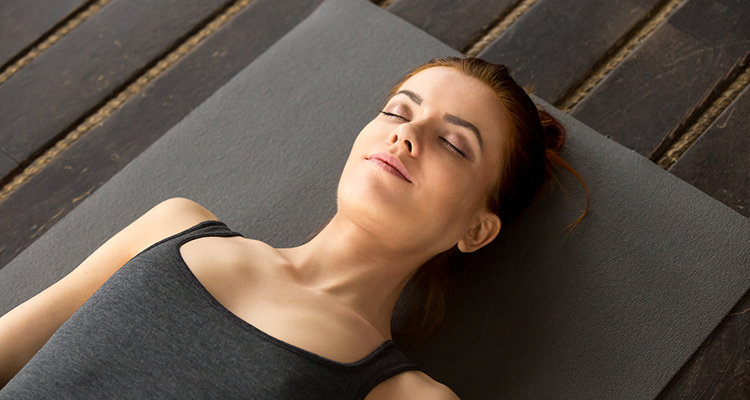
While heart disease remains the number one killer of Americans, cancer is of concern as well. And that means we’re always on the lookout for ways to prevent it.
Sleeping is one these ways! When we sleep, specifically, can influence cancer risk. Nightshift workers, for example, experience higher levels of breast and colon cancer (two of the most common types) because they have lower levels of melatonin.
Melatonin is a sleep-related hormone that regulates the sleep-wake cycle and appears protective against at least some types of cancer. In order for the body to produce adequate levels of melatonin, we must turn off the lights (light inhibits its release). That’s why those on the nightshift tend to have low melatonin levels: They sleep during the day when the light keeps the hormone from reaching optimal levels.
Sleep, Stress, and Inflammation
Sleep gives the body a chance to shut out the world and take a break from all its stressors; it gives the body a chance to repair damage too. When we don’t sleep, on the other hand, our bodies experience higher levels of stress hormones, higher levels of inflammation, and a compromised ability to repair damage done by either.
Inflammation is implicated in a host of diseases, with its link to heart disease well known. But it doesn’t attack us from a cardiac standpoint and leave the rest of the body alone; inflammation can also cause diabetes, GI issues, cancer, and a number of other maladies.
Over the past decade or so, researchers studying cancer have zeroed in on inflammation as a cause of the mutations that lead to tumor development. This is at least partly why cigarette smokers experience high rates of lung cancer and why heartburn is a main cause of esophageal cancer. It’s also the reason taking an aspirin a day decreases the risk of developing all kinds of cancer; aspirin reduces inflammation, reducing the odds of illness.
But not all inflammation is bad and it appears that sleep is onto this as well. While chronic inflammation (inflammation that exists for years or decades) can damage DNA, acute inflammation is restorative. Imagine slicing your hand while cutting tomatoes. The cut becomes inflamed as your body enters the mode of damage control. It’s in this mode during waking hours, but it may do better at rest.
When we sleep, the brain releases hormones that encourage tissue growth and repair of blood vessels, allowing wounds to heal faster. Once the wound is healed, the inflammation goes away; after all, its job is done. And sleep helps prepare it for departure.
Sleep gives the body a chance to repair overt injuries (like cuts or burns) and it also allows space for damage caused by everyday environmental factors. These include UV rays, stress, smoke, and car exhaust (to name a few). As we sleep, our cells produce more protein and, because protein acts as the building block of cells, it is excellent at restoration.
The Bed’s Impact on the Battle of the Bulge
Sleep controls weight in a direct way: We can’t dine when we’re in dreamland. But that’s not the only area in which it’s beneficial. Adequate rest helps the body maintain normal levels of ghrelin and leptin, two hormones that regulate appetite. On the other hand, too little rest disrupts these hormones and makes us more likely to feel hungry, consuming more calories in the process.
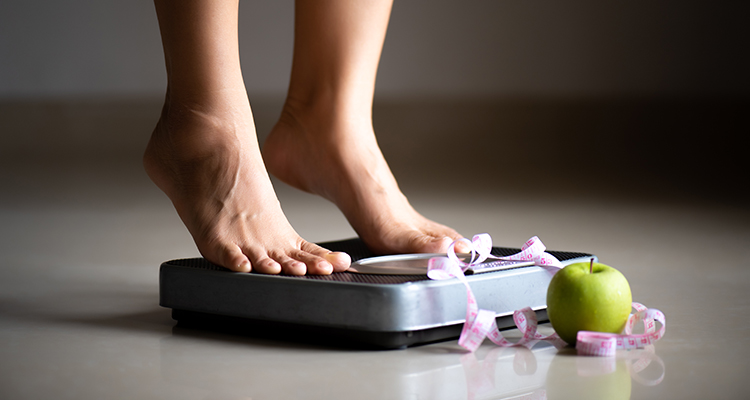
There are other ways sleep influences weight. A good night’s rest keeps our cortisol levels within normal range while, too little sleep, leads to a spike. A spike tells the body to preserve energy, resulting in fewer calories burned and less fat lost.
Sleep changes our insulin levels too. A few sleepless nights can confuse the metabolism and reduce sensitivity to insulin. This decreases the body’s ability to turn sugar, starches, and other foods into energy, storing them as fat instead.
When we’re tired, we’re also unmotivated; too little sleep translates into too little time spent at the gym. And this sets the stage for weight problems. For this reason, adequate rest is almost always included in any decent diet plan.
Sleep, For the Win!
There’s a reason athletes get a good night of rest before a big race: Proper sleep makes them more likely to propel themselves to victory. This is felt most acutely in endurance sports, like marathon racing, biking, or swimming. However, it can also impact sports that rely on reaction time (like baseball).
When a person is sleep-deprived, their whole body slows down. Lack of sleep zaps energy levels, leaves muscles less repaired, and decreases quickness.
This can be annoying or even harmful to anyone, but it’s often most potent in competitors. Adequate sleep can mean the difference between crossing the finish line first or lagging behind the pack.
Sleep’s Impact on Bacteria, Viruses, and the Immune System
There’s nothing like a global pandemic to increase our awareness of germs. While sleep certainly can’t replace handwashing in decreasing the odds of getting sick, it plays a starring role in keeping the immune system functioning.
The job of the immune system is to fight off bacteria and viruses that enter the body. Sometimes, it fights them off completely and we never get sick; other times, we get sick but rely on our immune system to make us better.
Adequate sleep keeps our immune system primed, allowing it to essentially excel at its job. During sleep, our body makes and releases cytokines, proteins that home in on inflammation and infection.
Sleepless nights, conversely, actively alter the way immune cells work, producing fewer cytokines and resulting in a slower attack. This lack of defense tends to leave us sick more often. It may also make illness worse than it would otherwise be. In short, without the immune system running full force, the body takes longer to recover.
Sleep’s Influence on Skin
Sleep helps us on the inside, thoroughly. But it makes a difference on the outside too. Yep, it turns out that beauty rest is an actual thing! This probably isn’t a surprise – hearing from someone else that we “look tired” doesn’t exactly land as a compliment.
One of the most prominent ways sleep affects the skin is by reducing wrinkles. Even getting a couple of extra hours a night can reduce the appearance of fine lines by half. It can also help the skin retain moisture, which prevents the dry skin that emphasizes wrinkles.
Sleep allows for collagen production too, preventing sagging skin (and an older look) and repairing damage from sun and other elements. And it increases blood flow to the face, keeping the cheeks rosy and youthful.
Of course, sleep does wonder for the eyes, keeping away the dark circles, puffiness, and bags synonymous with tiredness. Other things that help reduce the look of exhaustion include hydration and elevating the head with an extra pillow.
A Good Night of Sleep for a Good Hair Day
Okay, bad hair days don’t always correspond with sleepless nights (sometimes, they’re from humidity!), but a healthy sleep routine is necessary for a healthy head of lush locks. Lack of sleep leads to hair damage, hair loss, and breaking strands; it may also decrease the ability for hair to grow.

Our hair is influenced by sleep because of blood flow. Hair follicles, the areas where hair growth starts, absorb vitamins, minerals, and nutrients through this blood flow. When we get enough sleep, the blood flows freely and the hair, in turn, grows freely. Sleep deprivation, on the hand, decreases blood flow and makes it harder for the follicles to receive the necessities they require to thrive.
The Benefits of Sleep in Children
As important as sleep is to grownups (we literally can’t live without it), it’s even more important to children. Babies, especially, reap the power of the pause and the perks of ample shuteye.

The benefits are so dynamic in the young that their sleep needs are more rigorous. Babies have the most extreme needs, sleeping as much as 17 hours a day until they’re six months old. Then, they get by on 14 or so hours. Toddlers need around 12-15 hours, school-aged children need 10-12 hours, and teens need around 8-10. The older we get, the less we require.
One of the reasons children have increased needs is because sleep offers them additional perks. They reap the rewards previously mentioned, including lower blood pressure, weight control, and improved cognitive function, but they get some bonuses of the bed as well.
The Importance of the Growth Hormone
It’s not uncommon for a parent to put their child to sleep and swear, by morning, that they’ve grown two inches. While that might be hyperbole, there is a hint of truth to it: The body releases the growth hormone primarily during sleeping hours. This hormone is vital to human development as it stimulates growth, cell reproduction, and cell regeneration.

Rest Reduces the Risk of Injuries
From falling off of skateboards to falling out of trees, kids are clumsy and it’s not always easy to get out of childhood without a few broken limbs. Sleep doesn’t eliminate the risks of growing up, but it does reduce propensity for injury. According to studies, well-rested children are more coordinated and less impulsive than their sleepier counterparts.
The above can benefit adults as well, especially the elderly or those at high-risk for fracture because of osteoporosis.
Saying Goodnight Translates into Paying Attention
There are several things that can lead to attention problems in children; lack of sleep is one of them. Sleep deprivation in toddlers (less than ten hours a night per the research) can set the stage for hyperactivity and impulse issues as they grow older. For school-aged kids, adding in some extra winks can make ADHD easier to manage; as little as 27 minutes of extra sleep a day results in a big difference.
Sleep Makes Learning Easier
Because of the cognitive benefits of sleep, children who have a healthy routine benefit from an enhanced ability to learn – newborns learn in their sleep when they’re just hours old! A study conducted by psychologists found that children who took regular naps of 75 minutes remembered 15% less of what they learned when they were deprived of their normal routine. What’s more, kids dealing with inadequate sleep tend to exhibit moodiness (as any mom or dad will attest), something that undoubtedly makes them less interested in learning in the first place.

Adults experience enhanced learning too, but – because grownups don’t learn at the rate of children -this benefit isn’t as pronounced. Even so, a good night’s rest will make it easier to learn Spanish, a new dance step, a musical instrument, or anything else.
How Sleep Affects Life Expectancy
Human life expectancy is influenced by a variety of factors, including genetics, diet, exercise habits, education, friendships, alcohol or tobacco consumption, and gender. It’s also dictated, in part, by location. In the United States, people in different counties tend to live to different ages. The deviation seen is largely due to lifestyle, but it may include factors outside of our control as well. People who live at altitude, for instance, tend to enjoy longer lives.
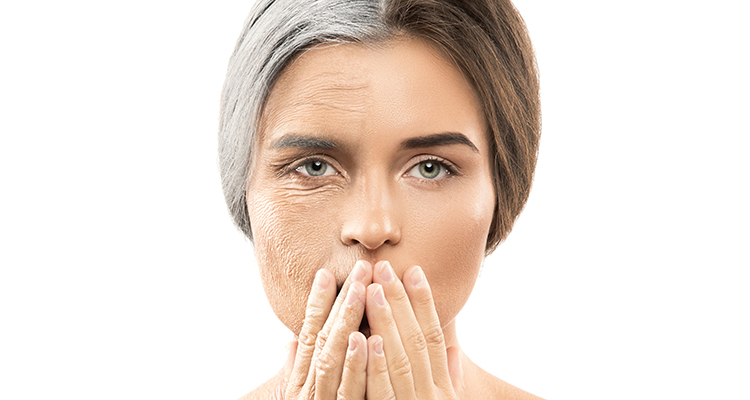
Sleep plays a role in growing old too. A sound slumber leads to human staying power for a myriad of reasons, including the multiple benefits mentioned in this article.
Yet that doesn’t mean we should sleep our lives away; in fact, there can be too much of a good thing. The secret is to meet in the middle, nestled in the sweet spot of 7-9 hours a night for adults. Anything less and anything more can cause issues.
In Conclusion
To recap, it does the following:
- Solidifies memories
- Processes emotions
- Enhances cognition
- Increases creativity
- Clears toxins from the brain
- Helps with depression, anxiety, and other mental illness
- Reduces risk of stroke and heart disease
- Decreases blood pressure
- Stabilizes blood sugar
- Reduces risk of cancer
- Keeps stress and inflammation in check
- Controls weight
- Improves athletic performance
- Stimulates the immune system
- Decreases wrinkles and dark circles
- Repairs skin and tissue damage
- Increases collagen production
- Strengthens hair
- Helps children grow
- Reduces risk of injury
- Improves focus and attention
- Makes learning easier
- Impacts life expectancy
The moral of this “bedtime” story is simple: when we don’t snooze is when we truly lose.
References:
http://healthysleep.med.harvard.edu/healthy/matters/benefits-of-sleep/learning-memory
https://www.ncbi.nlm.nih.gov/pmc/articles/PMC2890316/
https://www.sleepfoundation.org/articles/drowsy-driving-vs-drunk-driving-how-similar-are-they
https://www.livescience.com/13125-sleep-naps-boost-memory.html
https://pubmed.ncbi.nlm.nih.gov/3238256/
https://www.nia.nih.gov/health/what-happens-brain-alzheimers-disease
https://adaa.org/understanding-anxiety/related-illnesses/sleep-disorders
https://www.sciencedaily.com/releases/2019/03/190307081029.htm
https://www.cdc.gov/diabetes/basics/type2.html
https://www.medicalnewstoday.com/articles/320554
https://www.hsph.harvard.edu/nutritionsource/sleep/
https://www.mayoclinic.org/diseases-conditions/insomnia/expert-answers/lack-of-sleep/faq-20057757
https://www.whattoexpect.com/first-year/sleep/how-much-sleep-do-babies-need/
https://www.parents.com/health/healthy-happy-kids/the-7-reasons-your-kid-needs-sleep/
https://www.cbsnews.com/news/27-extra-minutes-of-sleep-may-make-kids-better-behaved/
https://www.sciencemag.org/news/2013/09/naps-nurture-growing-brains




